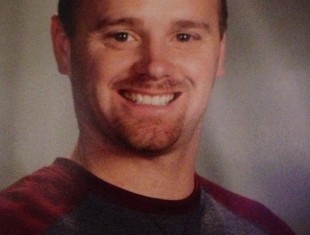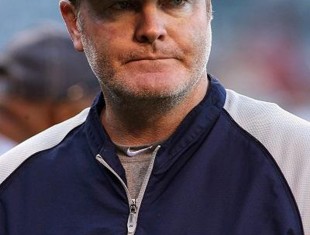Diego Segui, 1977
By Terry Mosher
Editor, Sports Paper
For several years, Diego Segui was mad at the Seattle Mariners and refused to come to the Emerald City from his home in Kansas City, Kansas. The former Major League pitcher got miffed over a screw-up in an airline ticket when the Mariners invited him to throw out the “last pitch” at the Kingdome in the 1999 MLB season before the club shifted to Safeco Field.
“The ticket Snafu was purely accidental and he took it very personally,” said Randy Adamack, who is senior vice president for communications for the team.
It all started because Segui has a unique history in Seattle baseball. He pitched both for the Seattle Pilots in their first-ever game and he pitched for the Seattle Mariners in their first-ever game.
So the Mariners thought it would be great if Segui, who earned the nickname “The Ancient Mariner” because of his affiliation with the Mariners, threw out the first pitch in the last game at the Kingdome.
It was a great idea, too. But when Segui and his wife Emily arrived at the airport in Kansas City to pick up their electronic tickets that were promised by the Mariners, they weren’t there. Ticked, Segui returned home and the Mariners hastily arranged for Segui’s grandson Cory to throw out the first pitch that night (July 27, 1999) to Segui’s son, David Segui, who had played for the Mariners.
“I said forget it,” Segui said. “It made me so mad. When I got home I got a phone call saying they had computer trouble. I said forget it. I believe you are supposed to check on everything (to make sure things are right). It made me sick. I didn’t go there (Seattle) for a long time.
“My grandson Cory threw out the first pitch. It was supposes to be me throwing a strike.
“They invited me back every year, but I didn’t want to go anymore.”
Segui and the Mariners finally patched things up last year.
“Diego was our guest,” says Adamack. “He was one of a series of former players who returned each weekend (last season) as part of our 35th anniversary season. In addition, the weekend he came also included our Salute to Latin American Baseball Night, so he represented two different events.”
Segui said, “They treated me real nice, first class. They invited a bunch of people. I go in September and threw out the first pitch. I throw a strike, too. Thanks to the good Lord. I reached home plate anyway.
“It was red carpet all the way. Everything was first class. I can’t complain about anything.”
“It is great that it is now behind us,” Adamack said.
Segui is 76 now. But back in the day he was a welcome edition to the Pilots and the Mariners. He was 31 years old when on April 6, 1969 he came into the Pilots first game at Anaheim and threw three innings of relief against the Angels. He allowed two hits, one run that was earned, struck out four, walked two and faced 12 batters. He also batted in the game, striking out.
He did not pitch in the Pilots home opener at Sicks’ Stadium. Gary Bell pitched a complete-game 7-0 shutout of the Chicago White Sox.
Segui, whose out pitch was a forkball, also threw a curve, change-up and slider in addition to his fastball. He was one of those guys who played baseball well into his 40s. He was just a few months short of his 40th birthday when on April 6, 1977 he started the Mariners inaugural game at the Kingdome against the California Angels.
In that game, a 7-0 loss by the Mariners, Segui pitched 3.2 innings, allowed five hits, six runs (four earned), struck out three and walked three. He gave up one home run and faced 22 batters while taking the loss.
Segui went 12-6 with a 3.35 ERA for the Pilots and was named the team’s MVP. He was not so fortunate for the Mariners. In his lone season for them he went 0-7 with a 5.69 ERA and was released at the end of the season.
The following year he was pitching in the Mexican League and threw his first (and only) no-hitter with the Cordoba Coffee Growers. Some reports have it as a perfect game.
Between pitching for the Pilots and Mariners, Segui landed in Boston where for a year (1974) he roomed with Juan Marichal, who in 1983 was inducted into the Baseball Hall of Fame.
Segui’s long journey began in Cuba. He was born there in 1937 and rose up to be one of the better Cuban baseball players. When Fidel Castro rose to power things changed quickly in Cuba. In 1961, according to a Society for American Baseball Research (SABR) story, Cuba announced that any Cuban player who failed to return to Cuba by a certain time would not be allowed to return to their homeland.
According to Segui, Castro himself held a meeting in Havana with Cuban players and told them they had a choice. They could play in the United States, but if they did they would not be allowed to return.
“I got out and never came back,” says Segui, who was among others like Luis Tiant who choose to pursue their baseball ambitions in the United States.
Segui had been signed by the Cincinnati Reds in 1958 as an amateur free agent and by the end of that season was sent to Kansas City.
“They sold me to Kansas City,” says Segui. “It was the best thing that ever happened to me (he met Emily there and in December they will celebrate their 50th anniversary). I wasn’t going to make it there (with Cincinnati). They had so many good pitchers; they had a great pitching staff. It would take me 10 years to make to the big leagues with them.”
Instead, he made it to the big leagues in four years with Kansas City, debuting in 1962 and going 8-5 with a 3.62 ERA. He would last 15 years in MLB with six different franchises – Kansas City (twice), Washington Senators, Oakland, Seattle (twice, Pilots and Mariners), St. Louis and Boston.
His MLB totals are 92-111 with a3.81 ERA. In 1970 with Oakland he won the American League ERA title with a 2.56, going 10-10 with the Athletics. He went 10-8 with a 3.14 ERA the following year and in 1972 was traded early in the season to St. Louis, which cost him a chance to get at least one World Series ring. The Athletics won the World Series three straight years, beginning in 1972.
But he did get to a World Series. In 1975 he pitched the eighth inning of Game 5, setting the Cincinnati Reds down in order (Cincinnati would win the World Series, 4-3).
It’s difficult to believe now because baseball players make so much money (the average baseball salary last year was $3.4 million), but back in Segui’s day baseball players were forced to find jobs in the off-season to pay the bills and provide for their families. Segui says his top salary in baseball was $70,000, but for most of his career it was much lower then that.
So in his first year in the big leagues with Kansas City he took a construction job in the off-season.
“To keep my family (his family would eventually include Diego Jr., David (who played for the Mariners in 1998-99), Danny and Diana) in good shape I worked building houses,” says Segui. “I didn’t play winter baseball.”
But that one year working construction was more than enough for him.
“I said forget it,” says Segui. “I go to Winter Ball.”
Segui looks at the economics of baseball these days and sees all the players making lots of money and complaining about it or doing things they shouldn’t do, and just shakes his head. He can’t understand it.
“It’s completely different now,” he says. “You give them everything and they still complain. And they do a lot of wrong things.”
For him, it’s all about family and doing all the right things.
“I got a great family, and to me that is more important than making a lot of money in baseball,” Segui says. “I missed so many things with my family and my kids, but I had to go and play winter ball (Venezuela and Mexico) to keep the kids in (private) school and keep food on the table. My wife used to take them out and hit ground balls to my kids. You like to see you kids do things, but I was never around. I was working hard to bring them the best things and get them the best education.
“I love my kids. But I had to work hard. When you are young you try to give them the best things you can. I was lucky, lucky, lucky. It was like winning the lottery because none of my kids ever had trouble with the law, or anything, never gave trouble to my wife, and that is something special.”
Segui pitched for about 15 years in the Venezuelan Professional Baseball League, winning 100 games, which is something nobody else has been able to do. He is still remembered there and is in the Venezuelan Baseball Hall of Fame and Museum (inducted in 2003). He also was inducted in 2006 in the Hispanic Heritage Museum Hall of Fame.
Then he pitched eight more years in the Mexican League, where in his first year he went 18-6. His last year there he won the game 1-0, walked off the mound and handed the ball to his manager and said that was it. He was done.
He then spent eight years as a pitching coach in the San Francisco organization before finally giving the game up and retiring to Kansas City with Emily. While with the Giants, he worked with both minor league and major league pitchers, teaching them the forkball as well as other pitches.
Among many of his baseball highlights is his ability to strike out the great Mickey Mantle of the Yankees. For some reason, Segui says that he had Mick’s number.
“He was the one hitter who could never hit me,” Segui says. “I liked him. I admired him because he was a good hitter, but he couldn’t hit me and I think it was because of my forkball.
“One game, I struck out 14 Yankees.”
The journey was a long one for Segui. One can’t imagine how it is for a guy like Segui to come to a foreign country and try to not only compete at a high level in a sport, but to just survive in a land with a different language.
“When I first came here I didn’t know how to ask for a glass of water,” Segui says. “I used to just point my finger. But I wanted to be somebody and I worked hard, and thanks to the Lord, I made a life for myself.”
He also counts himself lucky, because so many good athletes with similar backgrounds didn’t make it, and maybe just because they couldn’t break through the culture differences.
“I made it to the top of the pitching world and a lot of guys never had the opportunity to do so. I’m in a lot of Hall of Fames in Central America because I found my way in life.”
For someone who came off a farm in Cuba and didn’t have a mentor to teach him how to play baseball, it’s incredible he was able to do what he did. He learned how to pitch and bat with a brother on the farm.
“I pitched to him, he pitched to me,” says Segui. “I played semi-pro because when I was 13 because I had a lot of power hitting and had a great arm to play third and the outfield. One day I was playing outfield and they asked me to pitch. I struck out 14 and they started putting me in to pitch.
“Somebody recommended me to the Cuban (National) Team and they invited me to Havana. I pitched three innings and struck out seven.”
A star was born.
His rise in the Cuban baseball system was rapid, but it all came crashing down after Castro came to power. You either stayed loyal to the Cuban system or you were out. Guys like Cookie Rojas were the first to leave Cuba and not be able to return. Segui would follow close behind.
Today, Segui gets invited to charity events where he just recently has begun to play golf. Like baseball, he’s learned fast and has a good game off the tee and on the green. It’s his short game that needs to be shored up. But he will get it there.
After all, Segui has shown through his history in baseball that he has the determination, and the work ethic to get ‘er done.




